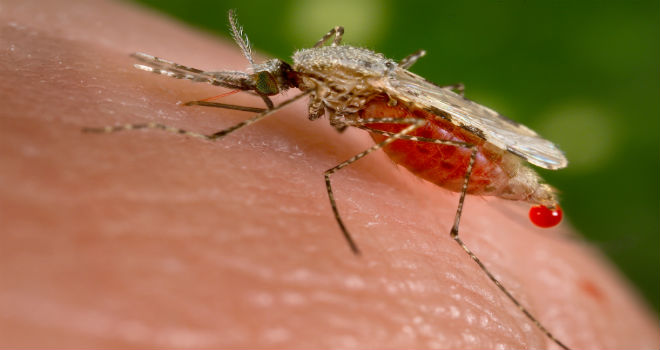Mosquitos Use Sense of Smell to Pinpoint Prey, Study
But those bites also have the potential to introduce hitchhiking pathogens to our bodies, namely malaria, dengue, yellow fever, and West Nile virus, among others.
Tis the season to be bitten by mosquitoes and the least you can do to prevent that is spread some protective block on and hope that the tiny insect won’t find your smell appealing. The study, published by researchers in the laboratory of Michael Dickinson, the Esther M. and Abe M. Zarem Professor of Bioengineering, shows that mosquitoes have three sensors – olfactory, visual, and thermal – that detect where exactly your delicious blood is.
So, the minute they employ a razor-sharp sense of smell to tip them off that a warm-blooded meal is nearby, mosquitoes then use vision and other senses to hone in on the feast, revealed the team from University of Washington and the California Institute of Technology.
UW biologist Jeff Riffell, co-author on the paper said,
“Very little was known about what a host looks like to the mosquito and how a mosquito decides where to land and begin to feed,”
. The more of those sensory cues that you disrupt, the less likely they are to find you and bite you.
To accomplish that, the research team put several mosquitoes in wind tunnels located in an enclosed environment to prevent them from escaping. When Carbon dioxide was present in high levels, the mosquitoes went in the tunnel with no exception, while there was zero interest in the control experiment with just background air. The researchers released 20 mosquitoes into a chamber with a single black dot that will be used to test the flying insect’s other senses, like their sense of sight and smell.
The wind tunnels were built without special features, but had a dark spot on the floor. It turned out that carbon dioxide triggered a strong response in the mosquitoes.
To test this hypothesis, researchers did the same Carbon dioxide plume experiment, but this time they provided a dark object on the floor of the wind tunnel. Researchers predicted that when the mosquitoes were exposed to CO2, which is an indicator of a nearby host, they would also spend a lot of time hovering near high-contrast objects, such as a black object on a neutral background. They may not seek a host until they smell one – in this case, due to the scent of our exhaled breath.
Riffell explained that Carbon dioxide is a signal that a warm-blooded host is around which a mosquito can sniff from a 30 foot distance. Then they pick their target by detecting body heat.
If so, the experiments Riffell and his collaborators are doing now may prove this theory.
“In a previous experiment with fruit flies, we found that exposure to an attractive odor led the animals to be more attracted to visual features”, added Floris van Breugel, a postdoctoral scholar in Dickinson’s lab and first author of the study. They may also identify odors that repel mosquitoes rather than attract them. “What our research shows is that it’s not one kind of odor or stimulus that’s attracting mosquitoes, it’s a real combination of cues”.












